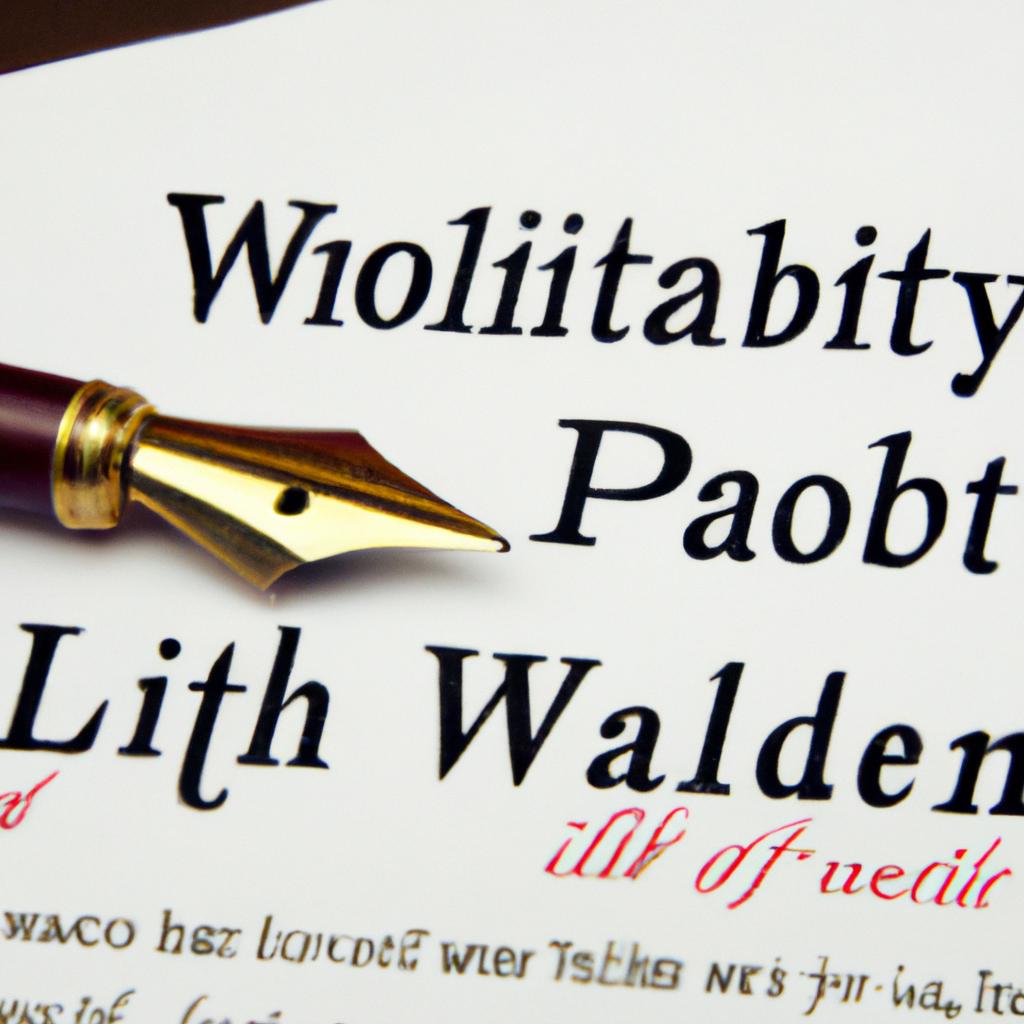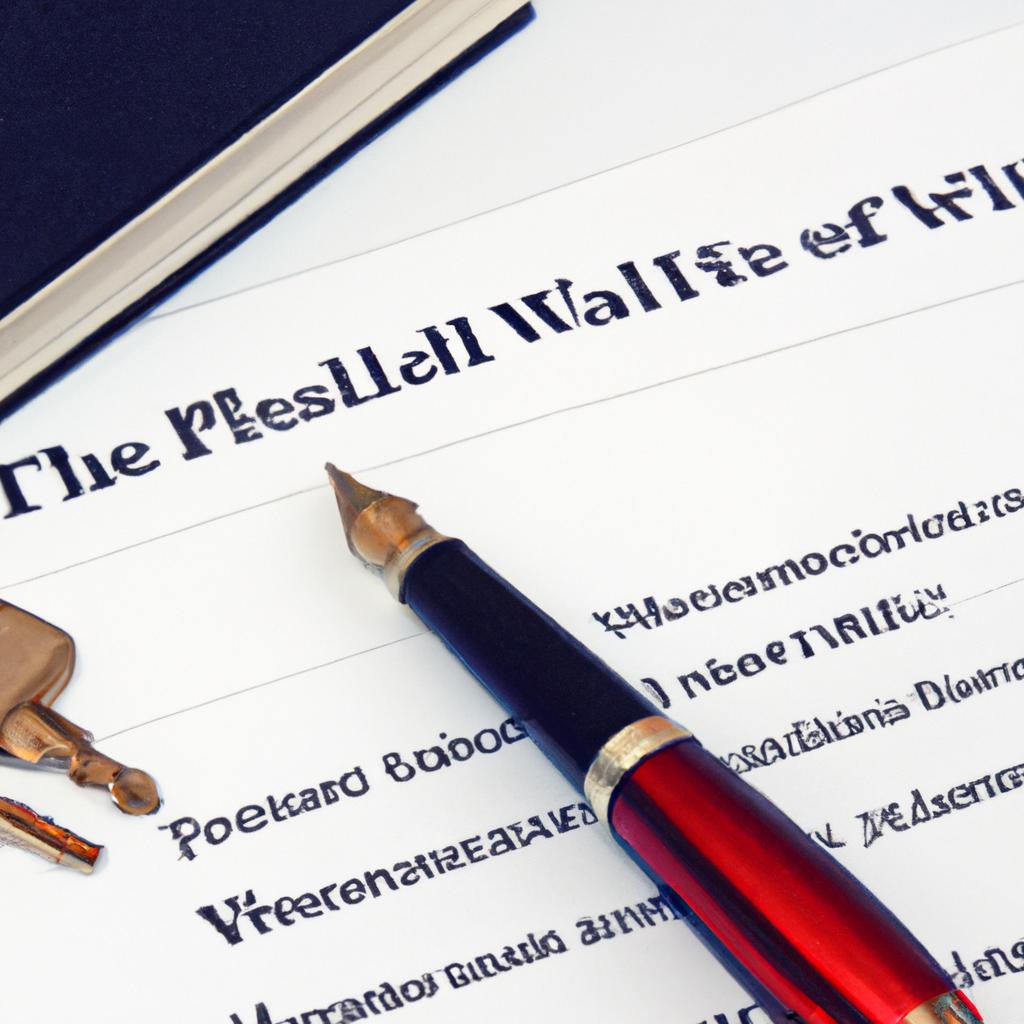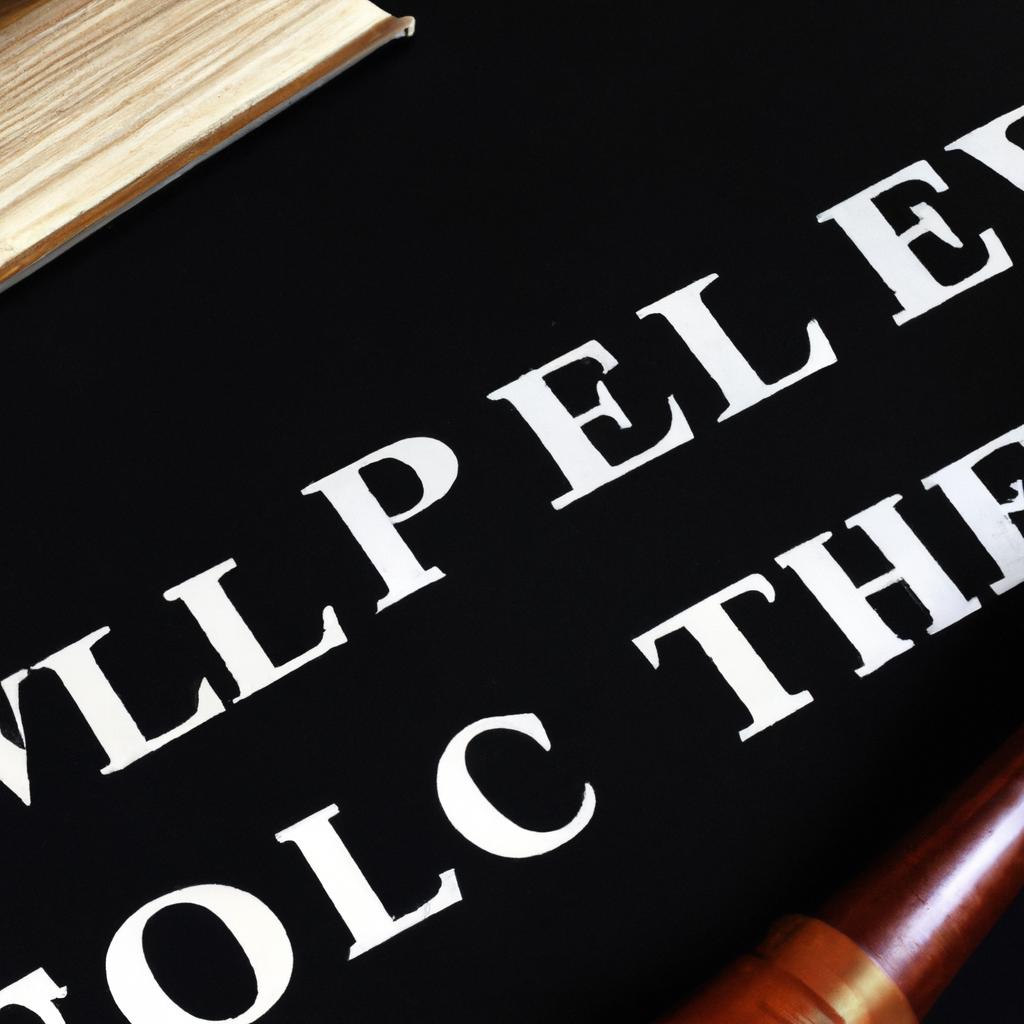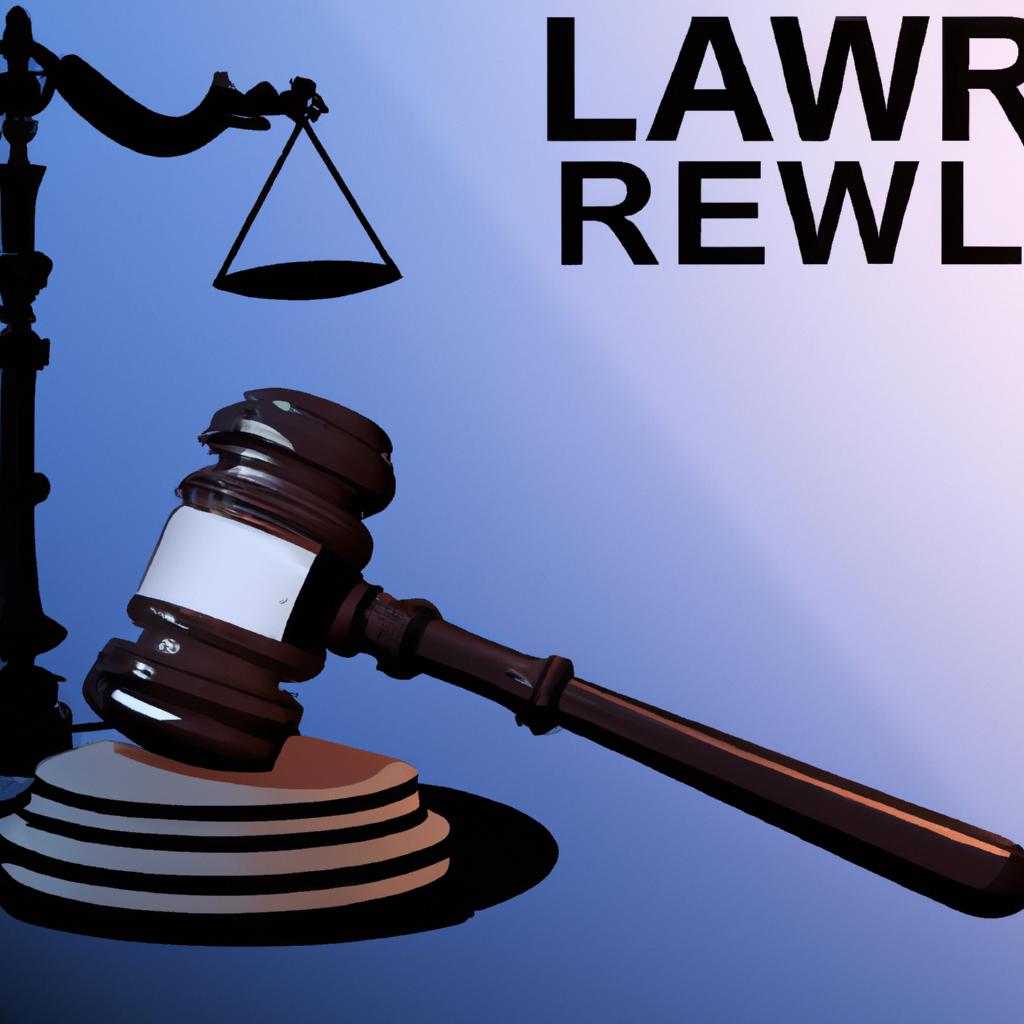As seasoned legal practitioners in the heart of New York City, the concept of will probate is a fundamental aspect of our daily practice at Morgan Legal Group. In navigating the labyrinthine realm of estate planning, Wills, and trusts, understanding what will probate entails is paramount. In this article, we will delve into the intricacies of this critical process, shedding light on its significance and implications for both testators and beneficiaries alike. Let us unravel the mystery of will probate and empower you with knowledge to navigate the complexities of the legal landscape. Welcome to a comprehensive exploration of “what does will probate mean.
Understanding the Legal Process of Will Probate
Probate is the legal process through which a deceased person’s will is validated by a court. It involves proving that the will is valid, identifying and inventorying the deceased person’s property, paying debts and taxes, and distributing the remaining assets as directed by the will. This process ensures that the deceased person’s wishes are carried out and that their property is transferred to the rightful heirs.
During the probate process, the court appoints a personal representative, also known as an executor, to oversee the distribution of the deceased person’s estate. The personal representative is responsible for following the instructions outlined in the will, paying any outstanding debts and taxes, and ensuring that the assets are distributed according to the deceased person’s wishes. It’s important to consult with an experienced attorney like the Morgan Legal Group to guide you through the probate process and ensure that everything is handled properly and efficiently.

Key Components of a Will Probate Process
Probate is the legal process of proving a will in court and administering the estate of a deceased person. It involves several key components that must be followed to ensure the deceased’s assets are distributed according to their wishes. One important component of the will probate process is the appointment of an executor, who is responsible for managing the estate.
During the probate process, the court will review the will to determine its validity, identify and inventory the deceased’s assets, pay off any debts or taxes owed by the estate, and distribute the remaining assets to the beneficiaries. This process can be time-consuming and complex, which is why it is important to seek the guidance of an experienced probate attorney to navigate the legal requirements and ensure a smooth probate process.

Challenges and Disputes in Will Probate Cases
In the world of estate planning, are not uncommon occurrences. When a person passes away, their will goes through a legal process called probate, where the court oversees the distribution of assets to beneficiaries. During this process, various challenges and disputes may arise that can complicate the probate process and prolong the distribution of assets.
One common challenge in will probate cases is when a beneficiary disputes the validity of the will. This may happen if the beneficiary feels that the will was created under duress, coercion, or undue influence. Another common challenge is when a family member or other interested party contests the will, claiming that it does not accurately reflect the deceased person’s wishes. These disputes can lead to lengthy court battles and strained family relationships. It is important to have a knowledgeable and experienced probate attorney on your side to navigate these challenges and disputes effectively.

Expert Guidance and Best Practices in Will Probate Proceedings
Will probate is the legal process of proving the validity of a deceased person’s will in court. This involves presenting the will to the court, ensuring that all legal requirements are met, and obtaining the court’s approval to administer the estate according to the terms laid out in the will. The probate process can be complex and time-consuming, requiring careful attention to detail and adherence to specific legal procedures.
During will probate proceedings, it is essential to seek expert guidance to navigate the process smoothly and efficiently. Best practices in will probate include working with experienced estate planning attorneys who can provide sound legal advice, assistance with court filings, and representation in probate court. Additionally, keeping detailed records, communicating effectively with beneficiaries, and staying organized throughout the probate process are crucial for a successful outcome.
Q&A
Q: What does will probate mean?
A: Will probate is the legal process of validating a deceased person’s will and executing their instructions for the distribution of assets and property.
Q: Why is will probate necessary?
A: Will probate ensures that the deceased person’s final wishes are carried out according to the law. It also helps settle any debts and disputes that may arise.
Q: How long does the will probate process typically take?
A: The duration of will probate can vary depending on the complexity of the estate and any challenges that may arise. It can take anywhere from a few months to several years to complete.
Q: What is the role of the executor in the will probate process?
A: The executor is responsible for overseeing the will probate process, including gathering and valuing the deceased person’s assets, paying debts and taxes, and distributing the remaining assets to beneficiaries according to the will.
Q: Are there any alternatives to will probate?
A: In some cases, a smaller estate may be able to bypass the formal will probate process through simplified procedures such as a small estate affidavit or a transfer-on-death deed. However, it is important to consult with a legal professional to determine the best course of action.
Future Outlook
In conclusion, understanding what will probate means is essential for anyone dealing with the complexities of handling a loved one’s estate. By navigating this legal process, you can ensure that their final wishes are carried out smoothly and efficiently. Whether you find yourself as the executor of a will or simply as a concerned family member, having a grasp on the probate process can provide a sense of clarity and peace during a difficult time. Remember, seeking the guidance of a legal professional can help you through this process and ensure that everything is handled correctly. So, take the necessary steps to probate a will and honor your loved one’s memory with respect and care.
 What Does Will Probate Mean? An In-Depth Guide
What Does Will Probate Mean? An In-Depth Guide
When a loved one passes away, their estates and assets must be legally and properly handed over to their beneficiaries or rightful heirs. This process is known as will probate and plays a crucial role in administering the deceased individual’s final wishes. While the process may seem daunting, understanding the basics of will probate can help alleviate some of the stress and uncertainty. In this comprehensive guide, we will explore what will probate means, how it works, and why it is necessary.
Understanding Will Probate
Will probate, also known as estate administration, is the legal process of validating a deceased individual’s last will and testament. It involves proving in court that the will is valid and enacting its instructions according to state laws. This is necessary to distribute the deceased person’s assets and settle any debts and taxes owed.
Who is Involved in the Will Probate Process?
The first step in the will probate process is to name an executor or personal representative. This individual is responsible for overseeing the estate administration and carrying out the deceased person’s instructions. Typically, this individual is designated in the will itself, but if there is no will, the court will appoint an administrator. Executors and administrators have similar duties and responsibilities, and their titles will often be used interchangeably.
What Are the Steps Involved in Will Probate?
The will probate process can vary depending on state laws, the size and complexity of the estate, and any disputes among beneficiaries. However, there are several basic steps involved in the process:
1. Filing of the Will
The first step in the process is to file the will with the local probate court. If the will is self-proving (witnessed and notarized), this step can be relatively simple. However, if the will is not self-proving, witnesses will need to provide testimony to validate its authenticity.
2. Notification of Beneficiaries
Once the will is filed with the court, the executor/administrator is responsible for notifying all beneficiaries named in the will or heirs at law (if there is no will). This is done to give them the opportunity to contest the will or claim their share of the estate.
3. Inventory and Appraisal of Assets
The executor/administrator must then compile an inventory of the deceased person’s assets, including real estate, valuables, and financial accounts. This inventory must also be submitted to the court for approval before any assets can be distributed to beneficiaries.
4. Payment of Debts and Taxes
The deceased person’s debts and taxes must be paid before any assets can be distributed. This can include outstanding mortgages, credit card debt, and any taxes owed to the state and federal governments.
5. Distribution of Assets
Once all debts and taxes have been settled, the remaining assets can be distributed to the designated beneficiaries. This must be done according to the instructions outlined in the will, and the executor/administrator must ensure all legal requirements are met.
6. Final Accounting and Closing of Estate
The executor/administrator is responsible for keeping detailed records of all estate-related transactions and providing a final accounting to the court. Once the court approves the final distribution of assets, the estate can be closed.
Why is Will Probate Necessary?
There are a few reasons why will probate is necessary, including:
1. Ensuring Validity
The court oversees the probate process to confirm the validity of the will. This helps prevent any fraudulent wills from being enforced.
2. Resolving Disputes
Unfortunately, disputes can arise among family members and beneficiaries during the will probate process. The court can act as a neutral party to resolve any conflicts and ensure a fair distribution of assets.
3. Protecting Creditors and Heirs
The will probate process also ensures that the deceased person’s debts and taxes are paid before any assets are distributed to beneficiaries. This protects creditors and ensures that heirs receive their entitled inheritances.
4. Distributing Assets
Lastly, will probate is necessary to ensure that the deceased person’s assets are distributed according to their wishes. This is crucial for those who want to ensure their loved ones are well-provided for after their passing.
Benefits and Practical Tips
While the idea of will probate may seem daunting, knowing how the process works can help ease the stress. Here are a few tips to keep in mind:
– It’s always a good idea to start the probate process as soon as possible after the individual’s passing to avoid any potential legal and financial complications.
– Having a well-drafted, legally valid will can simplify the probate process and minimize the burden on loved ones. It’s essential to have an attorney review and draft your will to ensure it complies with state laws.
– Stay organized and keep detailed records of all estate-related transactions to make the final accounting process smoother.
First-Hand Experience
“I was named as the executor of my mother’s will, and I had no prior knowledge or experience of the probate process. It seemed overwhelming at first, but with the help of an attorney and some research, I was able to navigate the process smoothly. I learned the importance of having a valid will and keeping detailed records to make the final accounting process easier.” – John, 33, California
Conclusion
In conclusion, will probate is the legal process of proving the validity of a deceased individual’s will and distributing their assets according to their wishes. While the process may seem complex and overwhelming, understanding the steps involved and having a well-drafted will can help alleviate some of the stress and difficulties. If you find yourself in the position of executor or administrator, seeking the guidance of an experienced attorney can help make the process smoother and less daunting.


